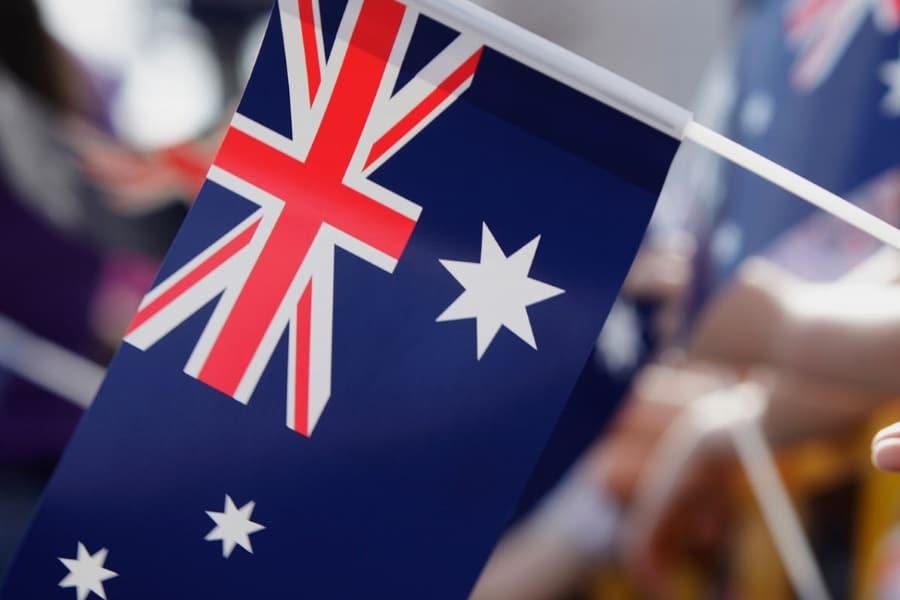
Published:
Readtime: 7 min
Every product is carefully selected by our editors and experts. If you buy from a link, we may earn a commission. Learn more. For more information on how we test products, click here.
As part of the country that gave the world Errol Flynn, the Hill’s Hoist, Kylie Minogue, Wi-Fi, The Wiggles, and RM Williams boots (to name but a few), and while there’s still a ways to go, there’s a great deal to be proud of if you’re lucky enough to call yourself an Australian. Whether you were born here or arrived by land or sea to make a new life, Australia is the little big country that often punches above its weight time and time again, and we, as Australians, through ingenuity and a community-minded, can-do attitude, consistently produce many valid reasons to love it a little bit more.
We are proud to be an Australian publication, but lately, a particular topic of debate concerning our fantastic country has become too loud to ignore.
The debate to change the official date of Australia Day from the 26th of January is one which rears its head every twelve months, and in recent years, has picked up enough traction to become ‘trending’, so that mainstream media outlets now flog it within an inch of its life. Popular YouTuber Friendly Jordies pointed out in a video that it wasn’t until 2017 that millennial-focused sites Junkee and Pedestrian even really picked up on the issue, yet now, it is evident that all media, from mainstream mastheads down to bored bloggers, have something to say on the matter.
The historical significance of Australia Day being held on the 26th is thin, at best. Though yes, it is indeed the day the First Fleet arrived in Port Jackson (or Sydney Harbour, as we now know it), it’s hardly the day they arrived in Australia; the fleet had been in Botany Bay for a whole week before realising it was no good for their plans (can you imagine putting the Opera House in Brighton Le Sands?). And, to make the whole saga just a little more embarrassing, the French turned up in the same week expecting to find a thriving colony that could provide them with supplies and assist with repairs on their ship. Instead, they discovered a small population of drunk officers, escaped convicts, tents that couldn’t withstand Australia’s heavy rainfall, and a severe lack of supplies—even fewer than their own rations.
The French quickly departed, and Captain Phillip took off north to Port Jackson to settle on the 26th of January.
As far as Aboriginal people are and were concerned, however, January the 26th is the first date their land started to be taken away from them, with little to no reparation. It’s symbolic of the first day of a very troubling 233 years (and counting) for people who had been here some 60,000 years prior.
Australia is the most successful multicultural nation on Earth, so a pinch of empathy is not too hard to muster. Imagine living quite happily in a country and culture which has existed since, to borrow a Whitlam-ism, time immemorial. All of a sudden, that land is forcibly removed by a strange group of people who indelibly change your culture and way of life forever.
Imagine, now, that some 200 years later, your grandchildren and great-grandchildren were forced to witness a celebration en masse, on the very same date your culture was changed, and precious land was reappropriated; land which holds deep spiritual meaning to you and your kin.
This is not to say that Australia shouldn’t be celebrated, rather that we can surely find a more considerate, appropriate and inclusive day for all Australians.
To suggest that current Aboriginal Australians who weren’t there generations ago to experience some of the worst atrocities awarded to their culture–the oldest living culture in the world–should just shake off the day it all changed after 60,000 years and forget about it is ludicrous.
The hangover from the 26th of January, 1788, and what many call an invasion, is palpable. Through subtle legislative instruments of exclusion to innumerable greater atrocities, and everything in between, there are still blatant reminders of how this day changed Aboriginal Australia forever, in today’s society.
An Aboriginal man in Australia is more likely to go to prison than university. Aboriginal people represent 28 per cent of our current prison system, despite comprising only three per cent of our total population. Life expectancy for Indigenous Australians is roughly ten years fewer than non-Indigenous Australians, on average.
To have these bare facts presented, and still refuse even to consider that the 26th of January is not a bit of a slap in the face to Indigenous folks would be laughable if it weren’t so prevalent.
Take Today presenter and Gamilaray woman Brooke Boney’s words last year: “This is the best country in the world. No doubt. But I can’t separate the 26th of January from the fact that my brothers are more likely to go to gaol than they are to go to school.”
Australia is a first world country and it’s 2021–when facts like this are casually presented on morning television by a breakfast show host who grew up with such inequality, they no longer merely exist in the boos of a protest crowd, or in the silent signatures of a well-circulated petition: they are out in the open; they go viral on Twitter; they are seen by hundreds of thousands on Facebook; they are very clearly heard.
Nobody, at least on a significant scale, is arguing that we should scrap altogether a national day of celebration. But the calls to have it moved to a more appropriate date are getting louder and louder, and they won’t be diminishing any time soon.
To argue that Australia Day should be on January 26 because of a richly embraced tradition is a hard sell, too. It was not recognised as a nationally celebrated holiday until 1994, making Australia Day as we know it the same age as Justin Bieber. It would make more sense to celebrate it on the 9th of November–Delta Goodrem’s birthday. She’s a whole ten years older than The Biebs, too.
Australia Day in any sense hasn’t always been on the 26th of January, either. The first nationally recognised Australia Day was, in fact, on the 30th of July, in 1915, as part of a fundraiser in aid of the war effort. And it stayed in July for years.
Currently, no valid argument to keep Australia Day on the 26th of January has been presented, rather, those insistent on keeping things ‘the way they are’ seem only intent on making sure that those with whom they disagree don’t get what they want.
Australia Day is a day for every Australian, regardless of creed, colour, race or origin. It’s a day of unity; of acceptance. It’s a day where we should all agree that Australia is the best country in the world, whether we’re cracking a tinny of XXXX or Passito, or dipping a Tim-Tam into a cuppa Bushells. It’s a day that every single Australian should be able to celebrate without having their ire drawn by jingoistic nationalism and tokenistic symbols of a perceived national pride.
And it’s currently not serving that purpose. This is why changing Australia Day to a date we can all celebrate, in harmony, as intended, is not the worst idea.
This debate is not going to go away. Wherever you stand on the subject, every year, as the 26th of January looms nearer, there is going to be more and more outrage from those who agree that this date is inappropriate, while the other side of an invisible divide will continue to respond with nothing more than lukewarm and manufactured patriotism at best.
While we seldom take a deep dive into political concerns here at Man of Many, the reality is that we don’t see this as a political issue at all; it is indisputably a social one, and one which can be so easily remedied.


































Comments
We love hearing from you. or to leave a comment.